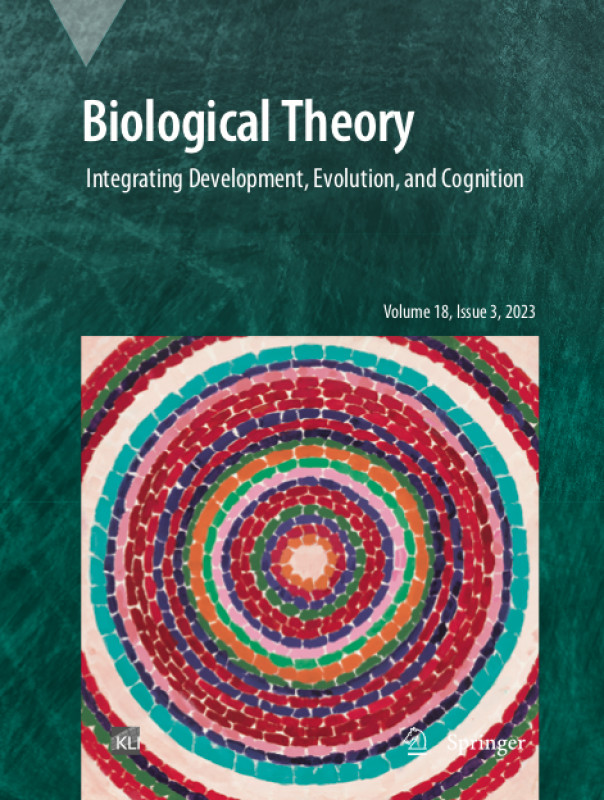News Details

In Biological Theory’s 18(3), September issue, Sophie Juliane Veigl reviews the distinction between biotic and abiotic stressors, well-recognized in physiology and epigenetics in plant and animal species. She argues for elevating the role of abiotic factors in immune responses as integral to a philosophical program advocating an ecological perspective on immune systems.
The issue also includes an in-depth debate about the evolution of consciousness, opening with Walter Veit’s presentation in a target article of his “pathological complexity thesis.” Consciousness, he argues, is an adaptive solution to the problem of having a “complex body with high degrees of freedom.”
Eva Jablonka and Simona Ginsburg provide a commentary on Veit’s article, maintaining instead that sentience evolved from “open-ended associative learning” and “the coevolution of sensory, motor, memory, and value subsystems,” plausible drivers of the Cambrian explosion. In his commentary, David Spurrett seeks from Veit more support for how his concept addresses consciousness rather than, as alternative complexity theses do, cognition or mere computational problem-solving capabilities. Veit offers a detailed response to both commentaries, along with suggestions for future research.
In a historical essay, Sahotra Sarkar surveys what he argues is the mischaracterized and unfairly sidelined work in the philosophy of biology within the logical empiricist tradition in the 1930s through 1950s. He reviews and defends the work of Mainx, and particularly Woodger and Nagel, for the continued relevance of their analyses for exploring current biological problems.
The issue finishes up with Kevin Lala’s review of The Making and Breaking of Minds: How Interactions Shape the Human Mind by Isabella Sarto-Jackson. He writes that the “marvelously compelling and rigorous” book demonstrates that causes of neural dysfunction are multiple and multifaceted rather than primarily gene based. According to Lala, the book’s niche-construction-informed perspective on how the social environment shapes cognitive development suggests potential interventions against human suffering.
For the December issue, we’re looking forward to publishing a special section on “Archaeology and Cognitive Evolution,” edited by Ross Pain, Ceri Shipton, and Rachael Brown, with four sets of authors exploring current evolutionary cognitive archaeology.

